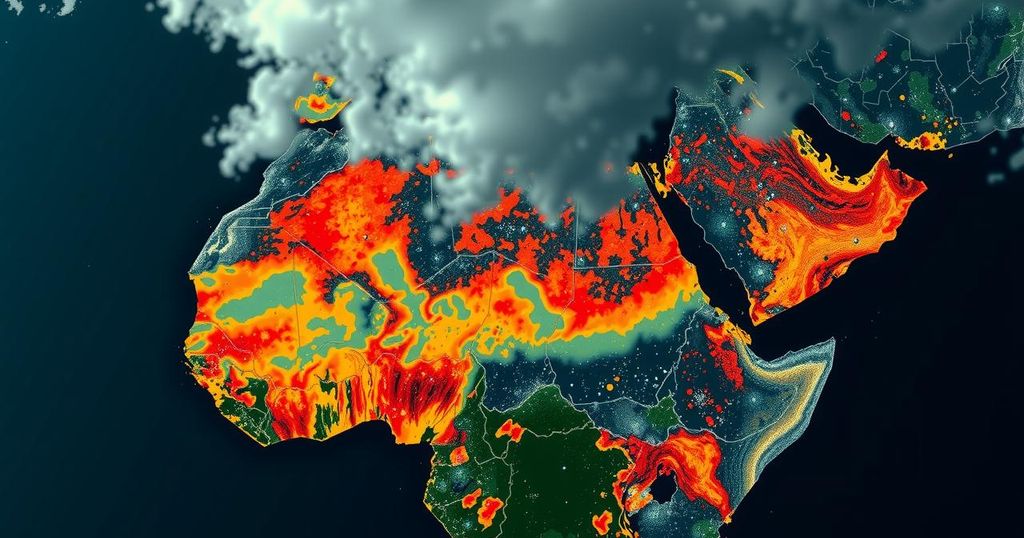Recent floods in Cameroon, Chad, Niger, Nigeria, and Sudan were exacerbated by human-caused climate change, resulting in heightened rainfall intensity of 5-20% this year. This trend could lead to annual extreme weather events in the future if global warming persists. Approximately 1,500 people have died as a result of the floods, and over one million have been displaced. Experts are urging for increased investment in adaptive measures before the upcoming COP29 climate talks.
Recent studies from international scientists have established that climate change has exacerbated the heavy rainfall, leading to severe flooding in several African countries, including Cameroon, Chad, Niger, Nigeria, and Sudan. According to the World Weather Attribution (WWA), global warming has intensified this year’s seasonal rains by approximately 5-20% in the Niger and Lake Chad basins. The scientists further warned that if warming continues, such extreme rainfall events could become an annual occurrence. Izidine Pinto, a researcher at the Royal Netherlands Meteorological Institute, emphasized the increasing frequency of intense summer rainfall in affected regions, stating, “Spells of heavy summer rainfall have become the new normal in Sudan, Nigeria, Niger, Cameroon and Chad.” These floods have had catastrophic consequences, with the United Nations Office for the Coordination of Humanitarian Affairs (OCHA) reporting that approximately 1,500 individuals lost their lives and over one million were displaced due to the floods this year. The intense rainfall has also caused significant damage to infrastructure, overwhelming dams in Nigeria and Sudan. The WWA indicates that if global warming were to reach 2 degrees Celsius (3.6 degrees Fahrenheit), a threshold projected for as early as the 2050s, such heavy rainfall events could become a near-annual phenomenon in these regions. The organization is calling for increased investment in early warning systems and enhancements to dam infrastructures to mitigate future disasters. Joyce Kimutai, a researcher at the Centre for Environmental Policy at Imperial College London, noted, “Africa has contributed a tiny amount of carbon emissions globally, but is being hit the hardest by extreme weather.” She stressed that it is essential for the upcoming COP29 climate talks in November to ensure that wealthy nations provide substantial financial support to assist in alleviating these impacts.
Climate change has been linked to escalating instances of extreme weather across the globe. In African regions, particularly in West and Central Africa, the consequences of global warming manifest through heightened incidences of flooding and intense rainfall. The current situation reflects a troubling trend, wherein the regions most affected contribute the least to carbon emissions yet bear the brunt of climate-related disasters. International scientists are actively researching the correlation between climate change and adverse weather events, particularly in vulnerable areas like the Niger and Lake Chad basins. The United Nations and various research institutes emphasize the urgency of adaptive measures and resources to tackle increasing environmental challenges.
In conclusion, climate change significantly intensifies rainfall in flood-prone African regions, leading to devastating effects on communities. The recent floods have underscored the urgent need for comprehensive climate adaptation strategies, particularly in enhancing infrastructure and investing in early warning systems. As global temperatures continue to rise, international cooperation and financial support from developed nations will be crucial to mitigate the adverse effects on the most vulnerable populations. The responsibility lies on global platforms like COP29 to address these challenges thoughtfully and effectively.
Original Source: www.cnbcafrica.com






